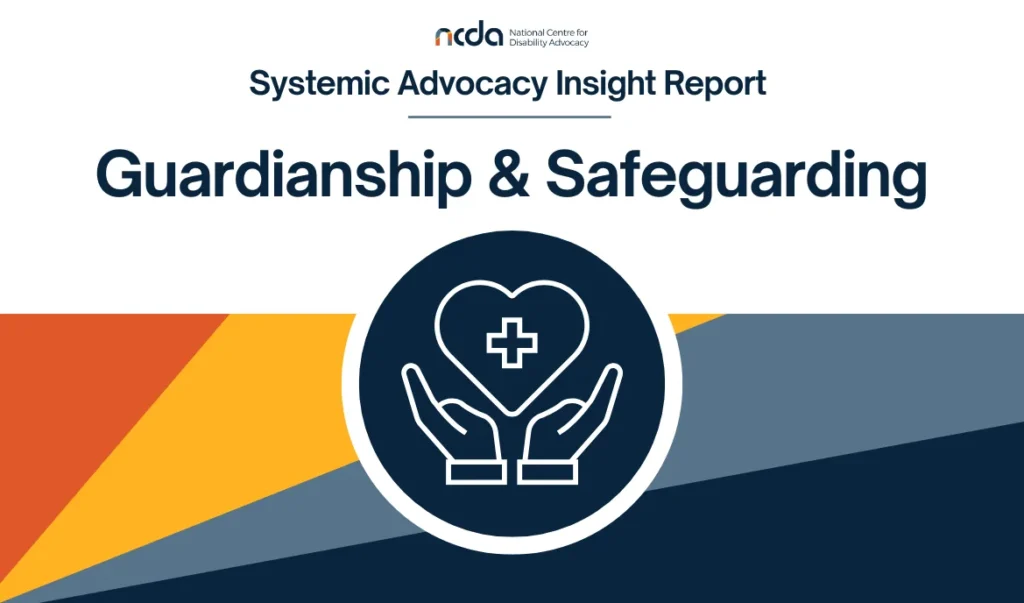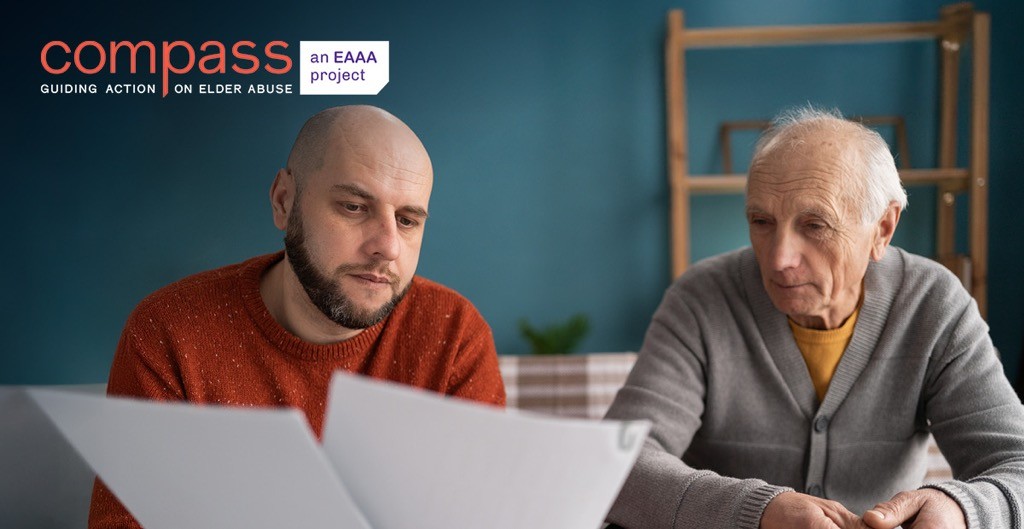Recent findings from the NCDA Systemic Advocacy Insight Report reveal growing concerns among advocates about the overuse and misuse of adult guardianship orders across Australia.
In Queensland alone, more than 12,000 guardianship applications are lodged each year with the Queensland Civil and Administrative Tribunal (QCAT) – but how many of those are necessary?
In this article, advocate, Rebecca Anderson spoke with DANA about the realities behind guardianship applications – and the critical role advocacy plays in pushing back against unnecessary or inappropriate orders.
Q: Can you tell us about ADA’s role in guardianship matters?
Advocate:
We’re involved in about 208 finalised matters annually which is just under 2% of the state orders. In every case, we assist the adult who is the subject of the application. We don’t work with families, support workers, health providers, attorneys, guardians, or financial administrators.
The cases we work on are often complex – sometimes because of family dynamics, sometimes because of conflicting medical evidence, or because the adult wants to regain their independence and others, like service providers, are resistant to that.
Q: What does that advocacy actually look like?
Advocate:
Our focus is on being empowering and less restrictive. That means we don’t step in to “represent” the person, we support them to have their own voice heard.
We help them understand what’s happening, explain the process, help them gather useful evidence, and think through possible options and outcomes. If they give permission, we might also speak with their stakeholders to understand what barriers they’re facing and help them build a strategy with a plan A, B, and sometimes C.
Q: Can you walk us through a recent case that stood out?
Advocate:
Yes – Carlos (not his real name) is a 54-year-old man living with MS. His previous support coordinator applied to QCAT for guardianship without even speaking to him. Carlos wanted support to fight the application and stop it from going ahead.
He’d already gathered evidence from his GP and OT, both supported his capacity to make decisions for himself. The application suggested he couldn’t make his own personal or financial decisions, but Carlos felt very strongly that wasn’t true.
We worked with Carlos to pull together his medical paperwork. He got a list of things to gather, like his financial records and proof of how he pays his bills. Over time, we checked in and helped him put together a submission for the tribunal, setting out his response.
Q: What was the impact of the application on Carlos?
Advocate:
It was confusing for him. He was frustrated and saw the application as vindictive, for changing support coordinators. At his first QCAT hearing, the applicant didn’t even attend, so it was adjourned for another six months. That delay weighed on Carlos.
Eventually, the hearing went ahead. Carlos was able to demonstrate that the applications had been unfounded. He’d settled in with new providers, had evidence to show that he always paid his bills on time, and could explain his financial situation clearly. We were able to support him to show that he didn’t need a guardian or administrator, and the tribunal agreed—there was no finding of impaired capacity.
Carlos is motivated to improve processes so that other people don’t have the same experience, and he identifies that if the service’s communication with him had been better from the start, this whole process would have been avoided.
Q: In your experience, are guardianship orders sometimes misused?
Advocate:
Yes. This case was a clear example of someone misusing a legal process. If Carlos needed anything, it was some practical help – like collecting brochures, discussing options, or searching the internet. That could all have been done with a supporter, not a formal decision-maker.
People often just need help with the functional parts of a task – not the cognitive or decision-making part. That distinction gets lost. Unfortunately, formal guardianship gets used when supported decision-making would have been far more appropriate.
Q: Do you come across issues working across states?
Advocate:
Yes—Queensland has a lot of people who’ve moved from down south. Sometimes, they have decision-makers appointed through NSW or Victorian systems like NCAT or VCAT. Then we have to ask: will the person stay in Queensland? Do we need to get that southern appointment recognised by QCAT? Do we need to refer them to legal services in their original state?
It’s a lot of practical problem-solving based on their situation, what they want, and how long they’re planning to stay.
Q: What needs to change to reduce overuse of guardianship?
Advocate:
These decisions need to start from a least-restrictive, rights-based place. That means giving people time. Let them work through their situation, options, and barriers, before jumping in with formal processes.
Support should be informal wherever possible. Guardianship should only be on the table when everything else has failed and there’s really no way around it. Otherwise, we risk taking away people’s rights unnecessarily.
Carlos’s story is a powerful reminder of what can happen when systems take shortcuts, and how advocates can create space for people to be heard, not overruled.
Disclaimer: Carlos (not his real name) is not under a guardianship order and consented to DANA sharing his story.


